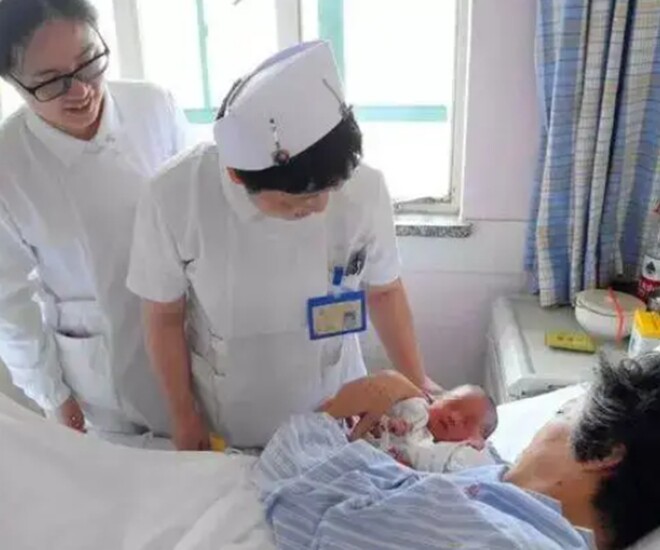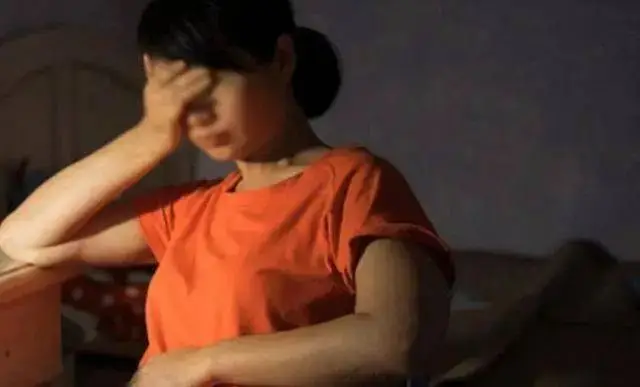Mrs. Tran, a 56-year-old real estate mogul from Shanghai, found herself in a unique predicament. With six properties to her name and a comfortable life, she and her husband had only one son.
After their son started his own family and had a daughter, he and his wife announced that they would not be having any more children.
Fearing that their wealth would eventually be inherited solely by their granddaughter, Mrs. Tran and her husband made a bold decision to have a second child, despite their advanced age.

Illustrative image
Mrs. Tran and her husband’s wish for a second child was fulfilled, but it came at a cost. Their son and daughter-in-law, embarrassed by the unexpected arrival of a younger sibling and angry with their parents’ decision, severed all ties with them. They even refused to visit their new sibling or their parents.
Initially, Mrs. Tran and her husband took this in stride, but as their health declined over time, they faced challenges in caring for their young child.
Eventually, they regretted their decision to have a second child, lamenting how their momentary anger had led to their family’s estrangement.
The traditional belief that “more children bring more fortune” is deeply ingrained in the minds of many older individuals. In families like Mrs. Tran’s, the issue of inheritance is often a significant concern. With only one daughter-in-law, parents may worry that their wealth will eventually leave the family, and to some extent, this belief motivates them to have children later in life.
However, having a child at an advanced age comes with its own set of challenges, be it physical, financial, or familial. Older couples contemplating parenthood should carefully consider the potential pitfalls.
Health Risks
The risks associated with pregnancy increase significantly for older women compared to those of childbearing age. Women aged 35 and above are considered advanced maternal age, and those over 50 fall into a high-risk category.

Illustrative image
During pregnancy, chronic conditions such as high blood pressure, diabetes, and heart disease can worsen and pose dangers to both the mother and the fetus. While Mrs. Tran successfully carried her pregnancy to term, the physical toll of giving birth at an older age cannot be overlooked. The physical demands of postpartum recovery and childcare only added to her challenges.
Financial Strain
Raising a child entails significant financial investment. From education to healthcare to daily living expenses, the cost of raising a child continues to rise in modern society.
For older couples, most of their assets may already be tied up in their first child’s upbringing, and their limited retirement savings or income might not be sufficient for a second child.
Moreover, older couples have limited earning capacity and cannot easily increase their income through work like younger parents.
Complex Family Dynamics
When older couples have a second child, it often creates dissatisfaction among their existing children. In Mrs. Tran’s case, her son and daughter-in-law’s decision to cut off contact highlighted the lack of communication within the family.
Adult children may view their parents’ decision as an intrusion into their lifestyle or worry that they will be burdened with additional childcare responsibilities. This conflict can lead to strained family relationships or even breakdown.
Three Key Considerations for Older Mothers-to-Be

Illustrative image
Given the trend of older couples considering parenthood, it is crucial to thoughtfully consider the following aspects before making such a decision to avoid future regrets.
Is Your Health Up to the Task?
Childbearing is an extremely demanding process, especially for older couples. When women become pregnant over the age of 50, the functions of their reproductive system, such as the uterus and ovaries, have significantly declined, and the risk of pregnancy complications increases. Men may also face issues with sperm quality due to aging.
Therefore, both the wife and husband should undergo comprehensive health check-ups and consult specialized doctors to assess their physical suitability for pregnancy and childbirth.
Couples with chronic conditions like high blood pressure, heart disease, or diabetes should exercise caution to avoid compromising their health during pregnancy.
Do You Have the Financial Means to Support Another Child?
Raising a child is a long-term financial commitment, especially in cities where educational resources are highly competitive, and the cost of raising a child can easily reach billions of dong.
Older couples are typically retired or nearing retirement, with limited income. If most of their assets have been allocated to the first child, having a second child could lead to a decline in their quality of life.
While Mrs. Tran owned six properties, real estate is not a liquid asset. Daily living expenses and educational costs for the children still require careful planning.
Therefore, couples should assess their financial situation and ensure they have sufficient reserves to cover the costs of raising a child for the next 20 years.
Are Your Family Members Onboard?
The decision to have a second child involves not just the parents but the entire family. Adult children may feel pressured by their parents’ decision or even believe that it “obligates” them to take on additional responsibilities.
Thus, older couples should thoroughly communicate with their existing children to understand their thoughts and concerns before making any decisions.
If the children explicitly oppose the idea, forcing the issue may lead to a deterioration in family relationships, as seen in Mrs. Tran’s case, which is not worth the price.
The Pig’s Dirty Little Secret: What You Should Never Buy at the Butcher’s
Are you aware of the dangers lurking in your grocery store’s meat section? It’s time to uncover the truth and learn about the parts you should absolutely avoid, regardless of the tempting price tags or even if they’re given for free. Uncover the experts’ advice on the one cut of meat that should never be on your plate, all for the sake of your health and hygiene.



































